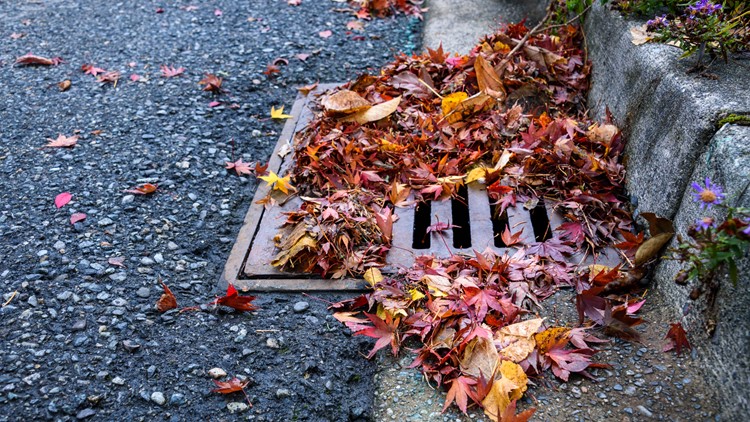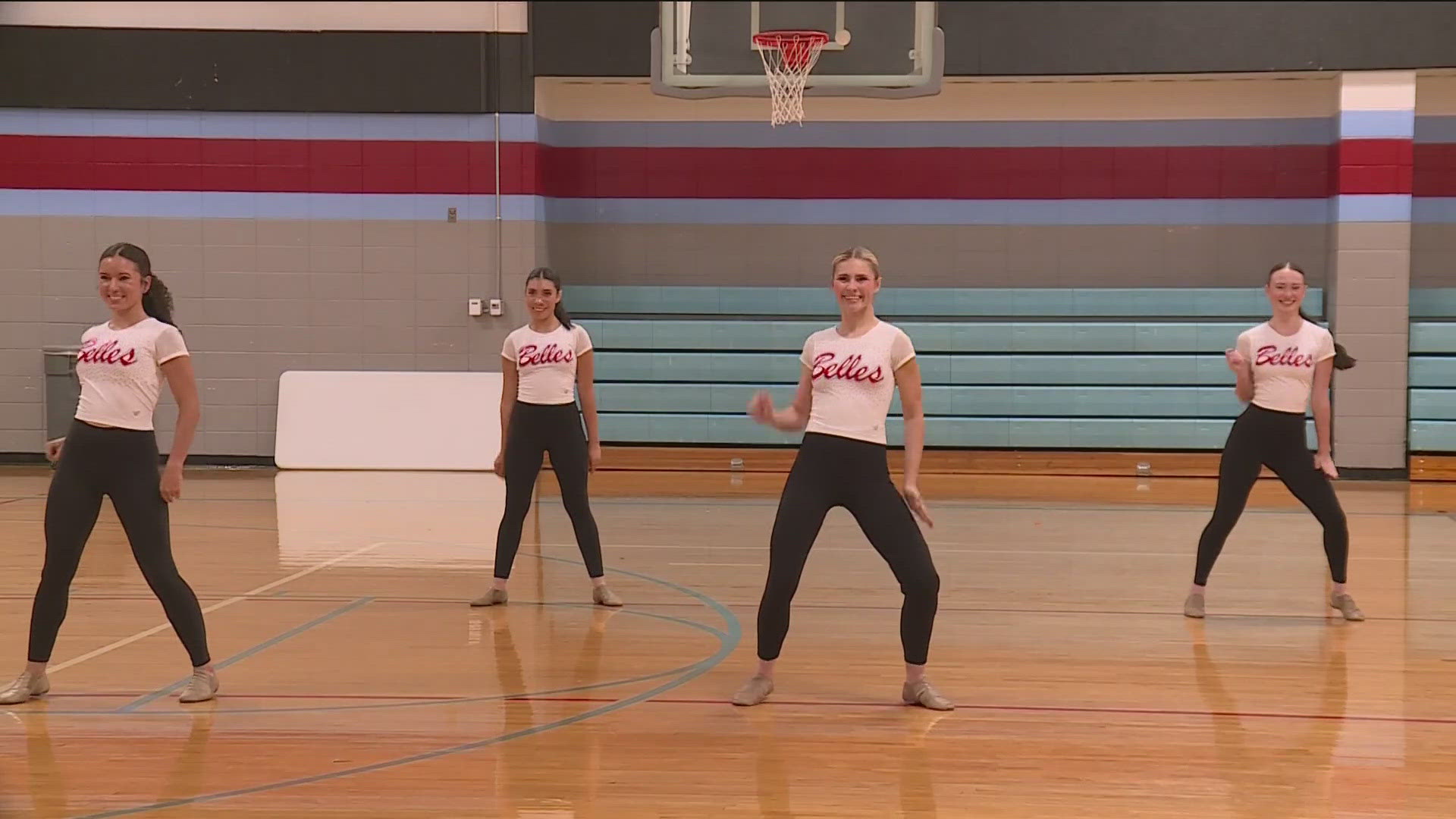FAYETTEVILLE, Ark. — As the leaves in the city of Fayetteville have started falling, residents and landscaping companies have been picking them up and dropping them off at the city's compost facility or using them for mulch.
Although the city is picking up a lot of the leaves, there are still leaves that are ending up in the city's ditches and storm drains. The accumulation of leaves can cause drains to clog, resulting in unsafe and costly stormwater issues. These issues can lead to streets and properties being flooded when it rains.
The fallen leaves also affect the quality of drinking water. Leaves and yard waste such as grass clippings are washed into stormwater drainage systems and make their way into streams and lakes.
The excess nutrients in the debris, include phosphorous and nitrogen which can lead to major water quality problems. Harmful algae blooms (HABs) produce toxins that can make people ill or even cause death in people and animals.
Officials say Lake Fayetteville and the pond at Bryce Davis Park have both been closed because of the algae on several occasions.
The City of Fayetteville is asking residents to help keep leaves and other litter out of the storm drainage system.
Here are some steps that can be taken to help this issue:
- Take a moment to clean the storm drain inlets and ditches in your neighborhood. Make sure they are free of leaves, litter, and other debris that may inhibit proper drainage – particularly when rainy weather is headed your way.
- Do not rake leaves, grass, or other organic refuse into the street or into a nearby ditch when doing yard work. In addition to blocking the drainage system, leaves and grass clippings reduce oxygen in our streams and lakes (affecting fish) and add materials that would not otherwise get into the water system.
- Do not clean driveways or sidewalks with a hose. Instead, sweep leaves, twigs, and grass clippings and place them in a compost pile or yard waste container.
- Do not dump trash or pollutants into ditches or drain inlets. Not only will these toxins clog the storm drain, but they can also severely damage local bodies of water.
Residents can also use the Fayetteville Recycling and Trash Collection Division to help with this issue. Residents can simply place leaves in a tall decomposable brown paper bag for curbside pick up on regular trash collection days. This service is free year-round for residents.
Residents are also allowed to drop off the leaves or other yard waste at the facility at no cost with a copy of their water bill. Commercial businesses and non-residents can both dispose of their yard waste at the City’s Compost and Mulch Facility.
Although much energy is spent on leaf removal, city officials say it is important to remember the benefits of fallen leaves as well:
- Leaves add beneficial carbon (“brown” material) to home compost piles, balancing out the nitrogen content (“green” material) of kitchen scraps.
- Leaves placed around plants help insulate young garden and landscape vegetation during cool nights.
- Leaves, when mulched by a mower, decompose more quickly and can be used to selectively add nutrients to soil or planting areas.
- Leaves enhance wildlife habitat and cover natural areas.
For more information on City resources, visit this www.fayetteville-ar.gov/compost or call Fayetteville’s Recycling and Trash Collection Division at 479-575-8398.



